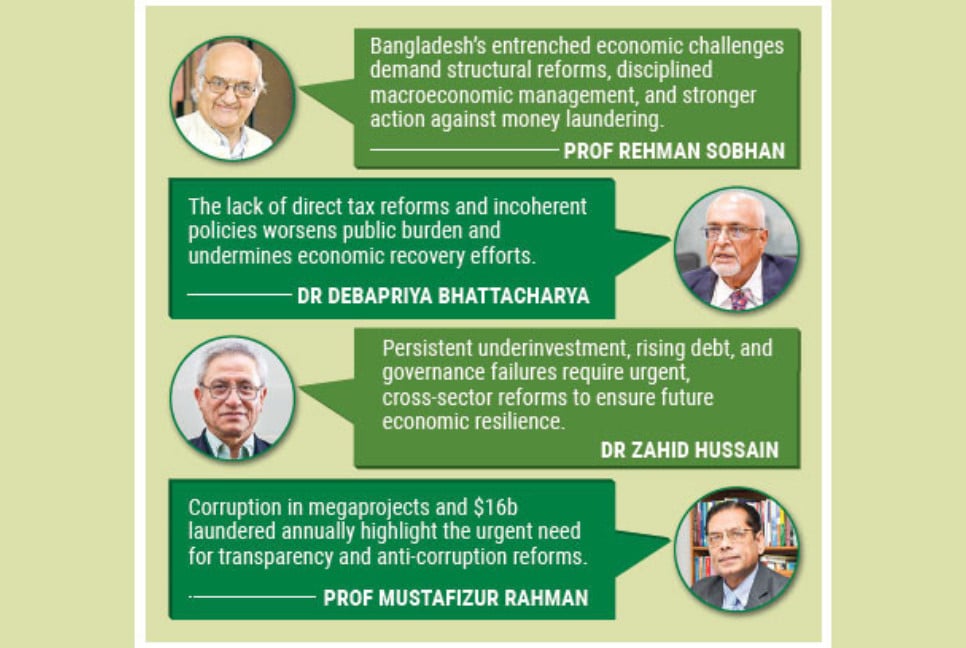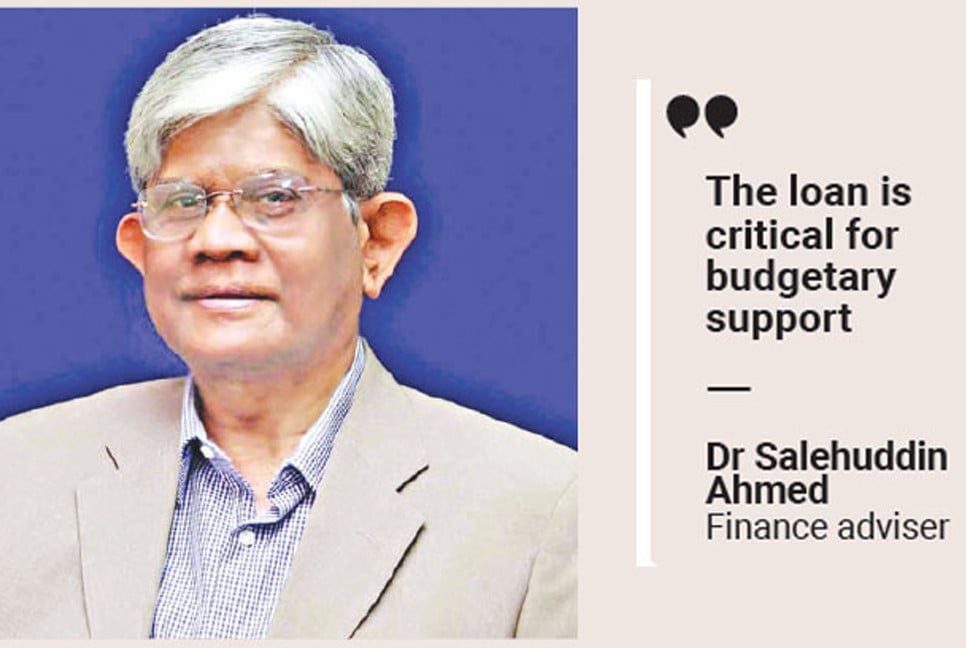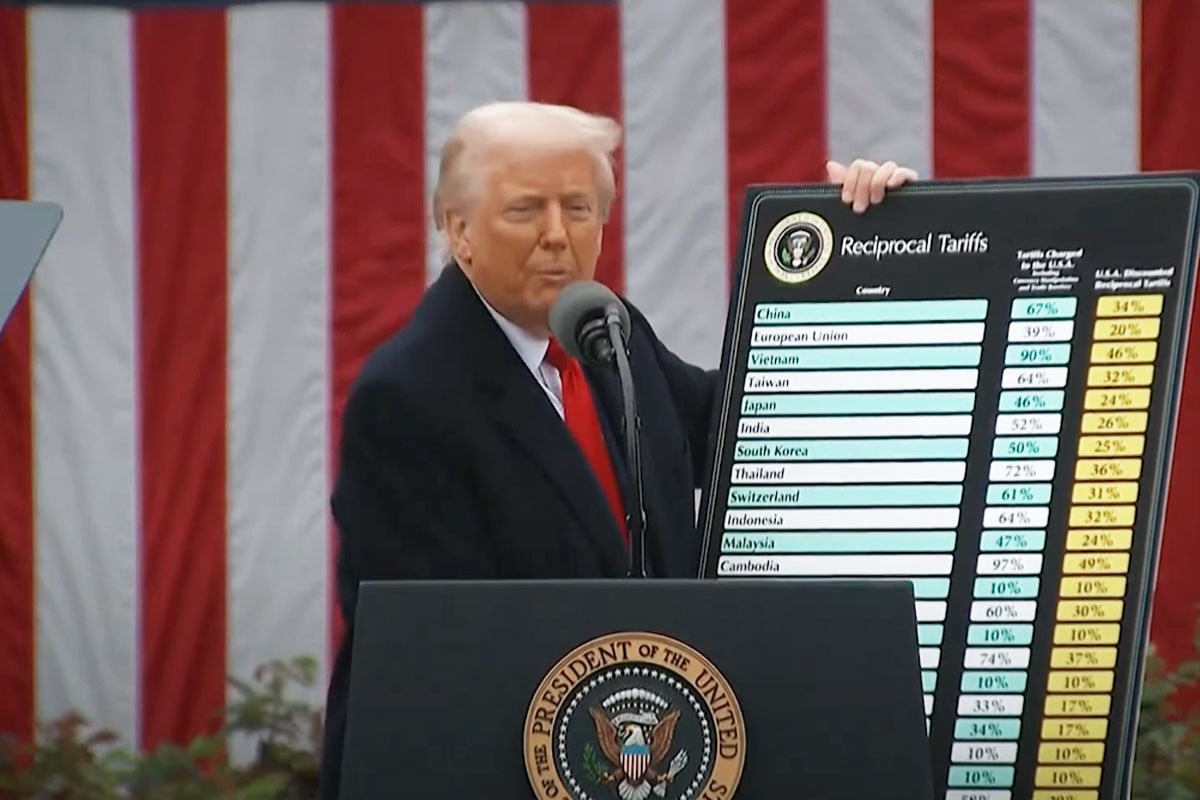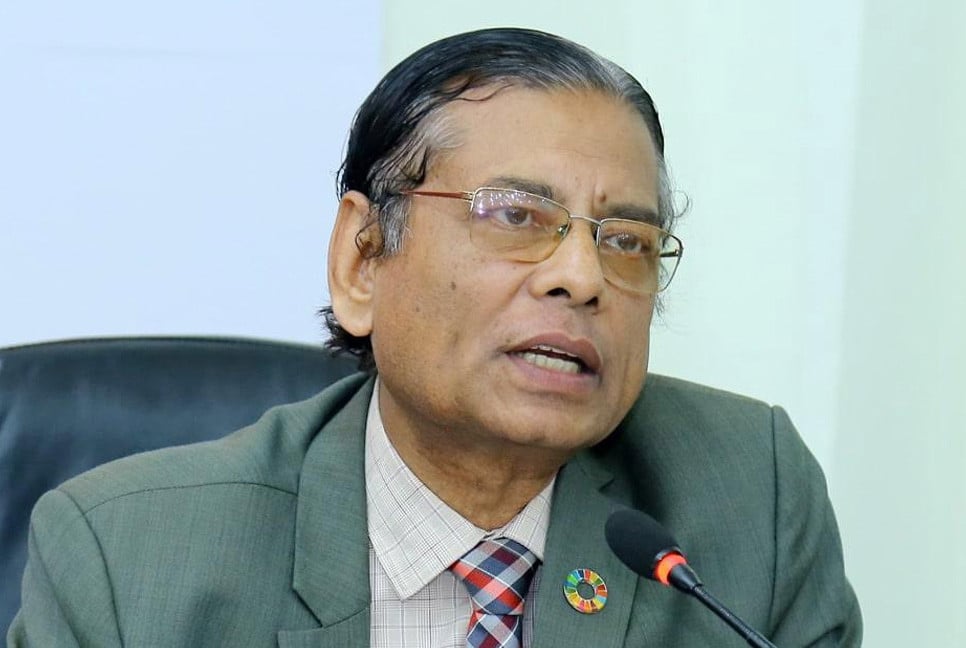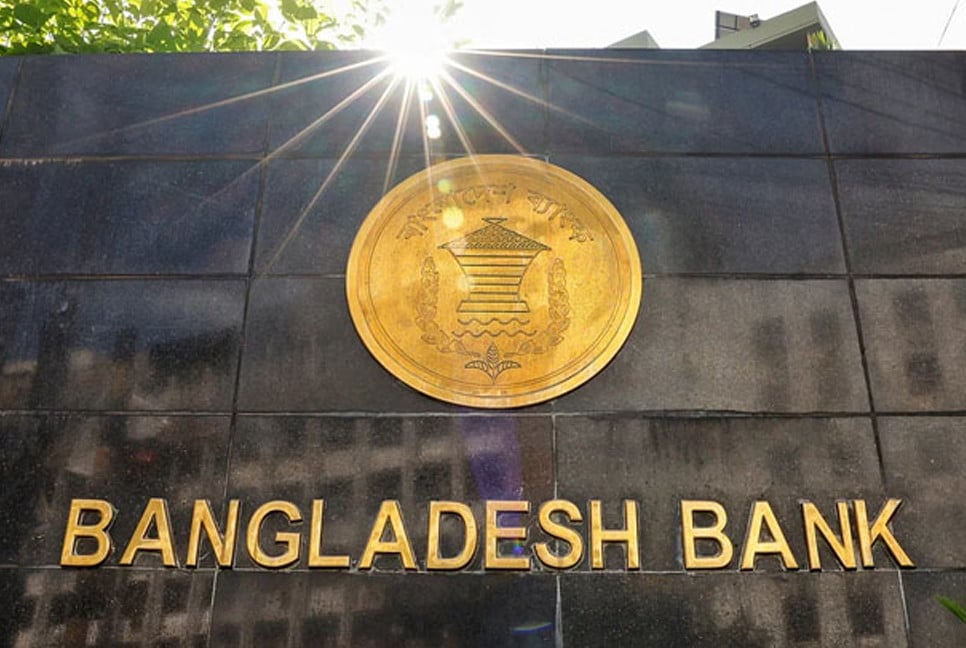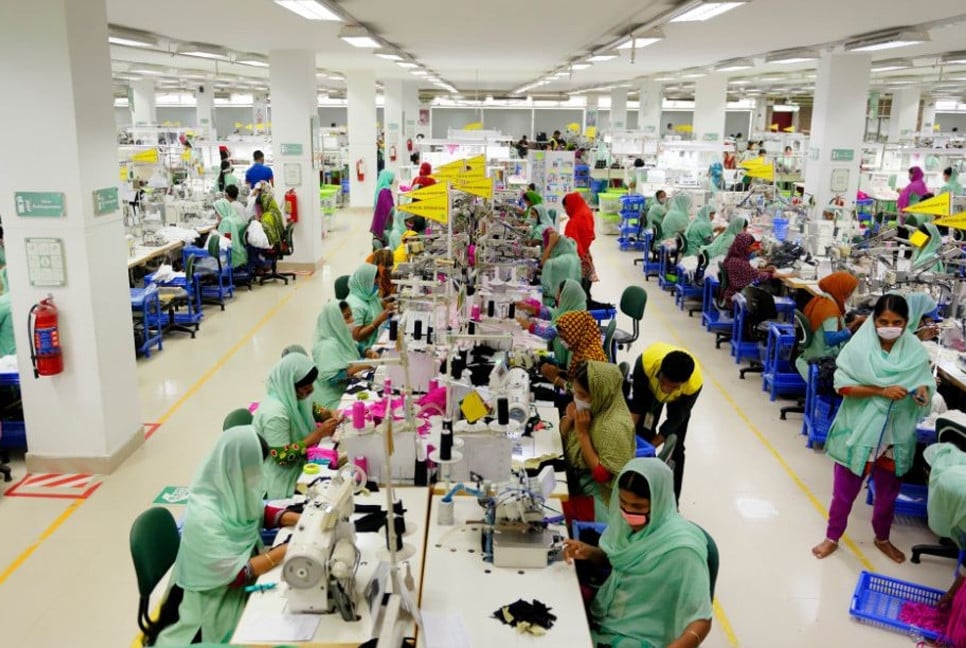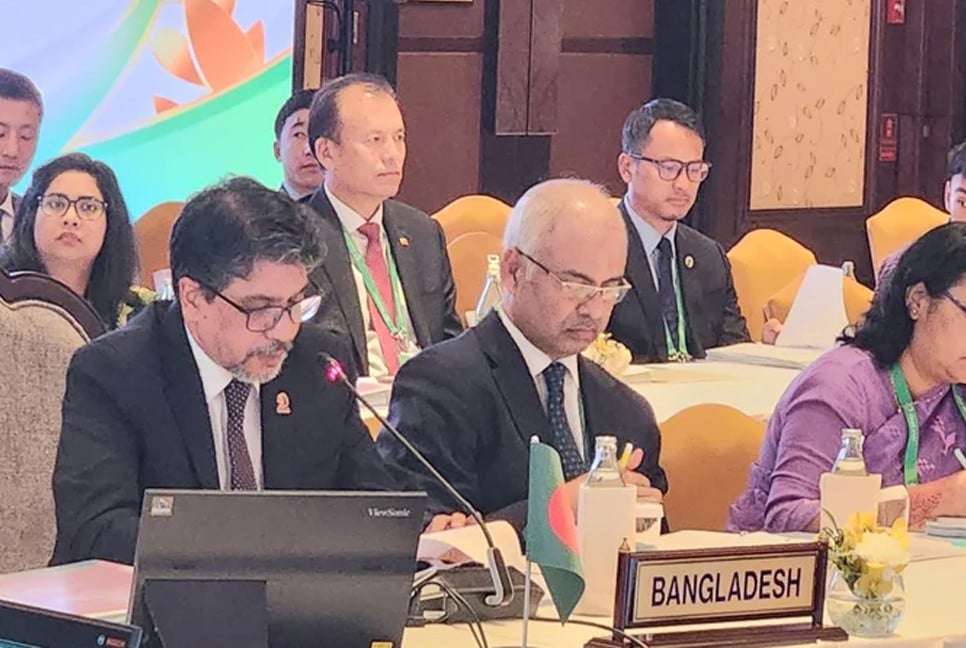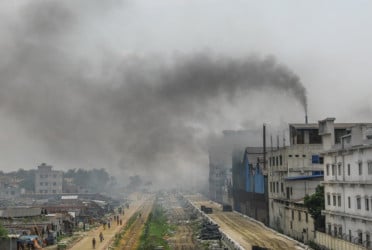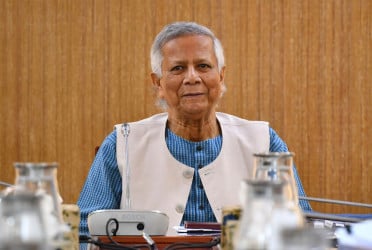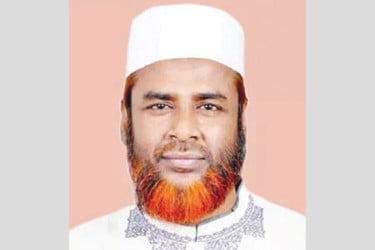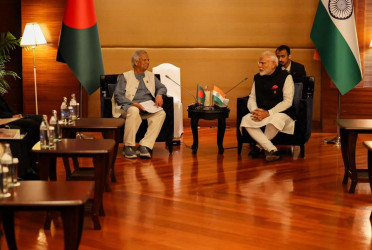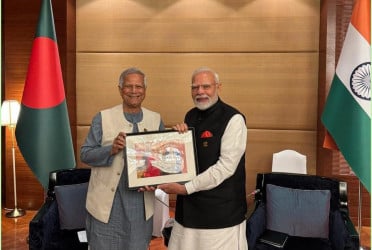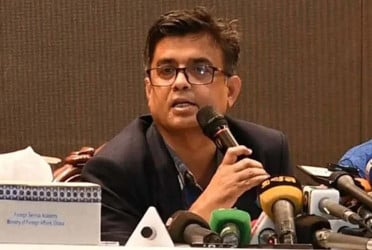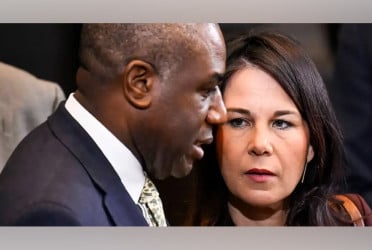Experts at a high-profile symposium on Saturday stressed the need for comprehensive and long-term reforms to tackle Bangladesh's deeply rooted economic challenges, warning that the nation’s structural issues require immediate attention to ensure sustainable growth.
The event, titled "White Paper and Beyond: Economic Management, Reforms, and the National Budget," was organised by the White Paper Drafting Committee 2024 and supported by the Citizen Platform for SDGs.
Held at a conference centre in Sher-e-Bangla Nagar, Dhaka, the day-long symposium featured twelve study papers and a series of discussions by local and international experts, focusing on economic management, proposed reforms, and strategies for developing Bangladesh’s economy through the national budget.
Dr Debapriya Bhattacharya, distinguished fellow of the Centre for Policy Dialogue (CPD) and head of the White Paper Committee, moderated the programme.
Addressing the event, CPD Chairman Prof Rehman Sobhan stated that Bangladesh’s long-standing economic challenges have become deeply entrenched in its systems, necessitating comprehensive and long-term reforms for resolution.
He expressed serious concerns about the country’s economic trajectory under the interim government, emphasising the need for disciplined macroeconomic management and reforms, particularly in the banking sector and tackling systemic issues like money laundering.
Addressing the audience, Sobhan underscored that many of the nation’s economic challenges, which have persisted for years, are deeply embedded in its structures and will require structural reforms to overcome.
He highlighted several key issues facing the interim government, including low tax-to-GDP ratios, lack of export diversification, corruption, debt mismanagement, and an underdeveloped financial sector.
These problems, according to Prof Sobhan, have worsened due to previous mismanagement.
He specifically criticised the central bank’s failure to regulate the banking sector, the prevalence of money laundering, and ineffective debt repayment mechanisms.
He attributed these systemic failures to a culture of crony capitalism, where businesses borrow excessively without timely repayment, further harming the economy.
Sobhan acknowledged the interim government’s limited time and authority to implement substantial changes but appreciated the identification of critical issues in the white paper.
He stressed that long-term solutions will depend on the political will of the next elected government.
A major concern raised by Sobhan was the issue of money laundering, which has persisted since the country’s early years.
Despite significant remittance inflows, he noted that illicit financial outflows continue to undermine the economy. Sobhan argued that creating an environment where investments in Bangladesh are more attractive than overseas ventures is essential for addressing these challenges.
Sobhan emphasised the interim government’s role in laying the groundwork for the incoming government, urging it to focus on identifying actionable solutions to the nation’s economic issues.
He concluded by stressing the importance of deep, structural reforms to secure a resilient and prosperous future for Bangladesh.
Concerns over economic reforms
Economists and experts have warned that public support for reforms in Bangladesh could wane if the interim government fails to expedite its reform agenda.
They cautioned that mounting economic insecurity might prompt reform advocates to abandon their stance, undermining efforts to guide the country towards balanced economic progress.
The experts called for urgent action in areas such as growth trends, employment, poverty alleviation, and social security.
They noted that the current political focus on elections and reforms has created division, with slowing growth, stagnant private sector investment, and rising unemployment adding to the challenges.
Dr Debapriya Bhattacharya criticised the interim government’s recent VAT hike, describing it as “inconsiderate” and warning that reliance on indirect taxes could disproportionately burden the public.
He also highlighted issues such as unclear government spending, worsening energy conditions, and corruption in the Aman paddy collection campaign. Bhattacharya stressed the absence of a cohesive economic agenda and suggested that failure to present a revised budget or clear reform plans could erode public support further.
Dr Zahid Hussain, former lead economist at the World Bank’s Dhaka office, challenged claims of rapid economic growth, citing a lower average growth rate of 4.2% between FY2009 and FY2019. He identified underinvestment, global disruptions, misguided policies, and the pandemic’s aftermath as key contributors to the current economic downturn. Hussain highlighted risks including rising public debt, persistent inflation, and dwindling foreign exchange reserves.
Prof Mustafizur Rahman, Distinguished Fellow at the CPD, drew attention to issues such as cost overruns, corruption, and lack of transparency in megaprojects.
He estimated that $16 billion is laundered annually through methods like trade mispricing and offshore dealings.
Prof Mustafizur proposed reforms to enhance project transparency, strengthen anti-corruption mechanisms, and foster international collaboration for asset recovery.
Energy expert M Tamim criticised corruption and mismanagement in the energy and power sectors, pointing to over-reliance on fossil fuels and misuse of the Special Provision Act.
He advocated a transition to renewable energy, improved governance, and reduced political interference to ensure long-term energy security.
Prof Anu Muhammad criticised reliance on IMF conditions, arguing that these policies exacerbate public suffering by reducing subsidies and raising prices instead of addressing corruption and institutional reform.
Commerce Adviser Sheikh Bashir Uddin highlighted irregularities in the Trading Corporation of Bangladesh (TCB), revealing that 37 lakh out of 1 crore cardholders were found to be fake.
He stressed the need for greater transparency in TCB operations and accurate GDP data to address economic disparities.
Social Welfare Adviser Sharmeen S Murshida called for better coordination between bureaucrats and ministries, urging transparency and discipline to improve governance.
BIDA Executive Chairman Chowdhury Ashik Mahmud Bin Harun emphasised the importance of efficient governance, particularly in developing five special economic zones.
He, along with other experts, called for simplified procedures, tax reforms, and effective market monitoring to address high commodity prices and support sustainable growth.
Source: The Daily Sun
bd-pratidin/Rafid

